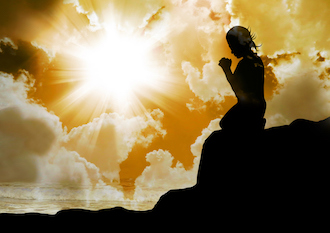 A recent article on Albert Mohler presented a question which was originally posed by Russian novelist Dostoevsky: ‘Will beauty save the world?’
A recent article on Albert Mohler presented a question which was originally posed by Russian novelist Dostoevsky: ‘Will beauty save the world?’ Such a thought-provoking query cannot be answered without first defining the idea of beauty. This question can be answered in a variety of ways, and we might be tempted to imagine the sort of beauty that stares out from magazine covers. However, the article directs us to consider beauty in biblical terms, initially turning to Isaiah Chapter 53:
Isaiah, in this great Christological prophecy, says, “He had no form or majesty that we should look at him and no beauty that we should desire him.” But now compare this with the Psalmist’s declaration of the Lord’s beauty in Psalm 27:4, “One thing have I asked of the LORD, that will I seek after: that I may dwell in the house of the LORD all the days of my life, to gaze upon the beauty of the LORD and to inquire in his temple.”
What do we make of that juxtaposition? In Isaiah 53 the Christ has “no beauty” as people gazed upon him; rather, he was stricken and afflicted. He was one from whom men turned their faces. Now, is that talking primarily about his physical appearance? Clearly not. Isaiah has in view Christ’s substitutionary atonement and the judgment on sin that occurs in that great event. Yet the Psalmist requests “that [he] may dwell in the house of the LORD all the days of my life, to gaze upon the beauty of the LORD and to inquire in his temple.” What do we make of this? Are the works of God in Christ beautiful or are they not?
To drive the point home, the article also delves into Revelation:
Now consider how the Scripture ends Revelation 21:22-27 as the apostle John describes the New Jerusalem: “And I saw no temple in the city, for its temple is the Lord God the Almighty and the Lamb. And the city has no need of sun or moon to shine on it, for the glory of God gives it light, and its lamp is the Lamb. By its light will the nations walk, and the kings of the earth will bring their glory into it, and its gates will never be shut by day — and there will be no night there. They will bring into it the glory and the honor of the nations. But nothing unclean will ever enter it, nor anyone who does what is detestable or false, but only those who are written in the Lamb’s book of life.” The New Jerusalem and the river of life are a testimony to beauty.
If we look at the subject of beauty from a Christian worldview, then the answer to Dostoevsky’s question is affirmative. As Christians, we see God as the ultimate source of all good and beauty. The ultimate example of this is the agony of the crucifixion. Although the event itself was far from aesthetically beautiful, we are moved by its beauty because it enshrines the grace and mercy of God in its purest form. As Albert Mohler’s article summarized so well:
Dostoevsky asserted that beauty would save the world. I’m entirely confident that beauty will indeed save the world because nothing could be more beautiful than the work of Jesus. And because Jesus’ work is beautiful, it is also true. And because His sacrifice is true, it is also good. The atoning work of the Lord Jesus is the epicenter of all that is true, good, and beautiful. The cross of Christ may not be pretty, but it certainly is beautiful.












